#rafał milach
Explore tagged Tumblr posts
Text
photography round 3 poll 6


Old Town Square in Warsaw by Sylwester "Kris" Braun, between 1993-95:
[no propaganda has been submitted]
Untitled from the Ba Lan series by Rafał Milach, between 2005-2008:
submitted description: Vetnamese women are eating hot soup at a restaurant, you can see fragments of vietnamese writing on the window
propaganda: This too is Poland (also i'm getting hungry just looking at this pic)
more photos in the series + a description of the project (in polish)
33 notes
·
View notes
Text

Warsaw, Poland. June 11, 2024
Photo: Rafał Milach
37 notes
·
View notes
Text

_____Rafał Milach
63 notes
·
View notes
Text
Rafał Milach (Poland, b. 1978). Visual artist, photographer, author of photo books. Professor at the Krzysztof Kieślowski Film School in Katowice, Poland. "Currently my focus is on visual investigation of the systems of control and manipulation at the interface between the authorities and society. It follows from my long-term interest in the political transformation of the post-Soviet territories. For me, the former Eastern Bloc has become a laboratory in which various models of modern propaganda are tested...
A key focal point of my current artistic practice is the clash between non-heroic gestures and ostensibly neutral spaces, which are in fact set against a political background of current events."
His award-winning photo books include The Winners, 7 Rooms, and The First March of Gentlemen. Rafał Milach has received scholarships from the Polish Minister of Culture and National Heritage, Magnum Foundation, and European Cultural Foundation. Finalist of the prestigious Deutsche Börse Photography Foundation Prize 2018 and winner of the World Press Photo competition. Co-founder of the Sputnik Photos collective of photographers and member of Magnum Photos.

Rafal Milach
416 notes
·
View notes
Text
instagram
Rafał Milach
1 note
·
View note
Text
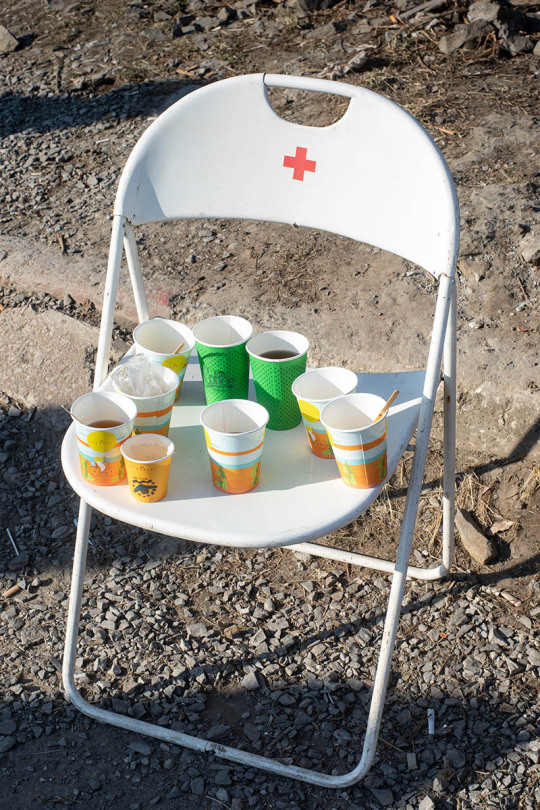
When Russia invaded Ukraine on 24 February 2022, Elena Subach found herself unable to photograph those fleeing the conflict. Instead she turned her lens on what they left behind
Elena Subach was born in Chervonohrad, a small coal-mining city in the Lviv region of western Ukraine. Her father was a miner while her grandfather painted icons for local churches. Such buildings are characterised by shiny, Baroque-style domes and ornate interiors, and make a spectacular impression on the city skyline. Subach uses her camera to make sense of the post-industrial landscape, but also the strange foreboding mood that defines cities like hers, and the ways that spirituality and superstition seep into everyday life in Ukraine.
As her artistic practice has evolved, Subach’s projects have become more vivid and evocative. Her work celebrates the inconspicuous objects that often evade attention, elevating them to near iconic status. She turns the fabric of life into a technicoloured patchwork of reality and myth. “Elena Subach is a tender observer of small moments and daily rituals. Ordinary items become totems: old ladies are elevated to the status of goddesses, and a simple hand gesture makes us think of magic,” says Polish photographer Rafał Milach, who nominated her for Ones to Watch. “She mixes memories, tropes and clichés, continuously drawing on and reimaging the visual identity of Ukraine.”
When Russia launched a large-scale invasion of Ukraine on 24 February 2022, disrupting and devastating the lives of ordinary Ukrainians, it was the biggest military attack in Europe since World War Two. At the time, Subach was living in Lviv and working as a researcher at the Lviv National Art Gallery. With the sound of air-raid sirens warning citizens of incoming missiles, her instinct was to leave the city and go to Poland. Instead, she and her husband drove to Uzhhorod, a city in western Ukraine situated between mountains where she felt they would be better protected.
The following day, the couple joined the local volunteer movement, the Transcarpathian Gastronomy Battalion, which organises shelter, food and psychological support for fleeing Ukrainians seeking asylum in Europe. Subach’s team was stationed closest to the border zone. In March, martial law was imposed in Ukraine, banning adult men from leaving the country, and the days became marked by farewells. Men drove their families to the border and dropped them off; couples parted ways; all of them hugged, kissed and said goodbye.
“All this time, I couldn’t photograph people,” says Subach. “I did not want to, I did not dare to interfere in their already violated personal space, despite understanding the importance of documenting this history.”
Instead she turned her lens on the empty chairs on which people left their belongings, imbuing them with gravitas while preserving a sense of humanity.
“They seemed to me like small islands in a sea of people – places to stop and relax for a minute. In many cases this would be the first time a person had a chance to sit down in 24 hours. Thousands of people have passed by these chairs. I think [the chairs] are very important witnesses to this war.”
Documentary photography can often reduce the victims of war to wounded bodies, and turn individual refugee experiences into one single story. Subach’s work does not show people encountering war but compels us to imagine them beyond the frame.
www.elenasubach.com
Subach’s latest photobook, Hidden, is published by Besides Press and launches 15 September 2022.
21 notes
·
View notes
Text
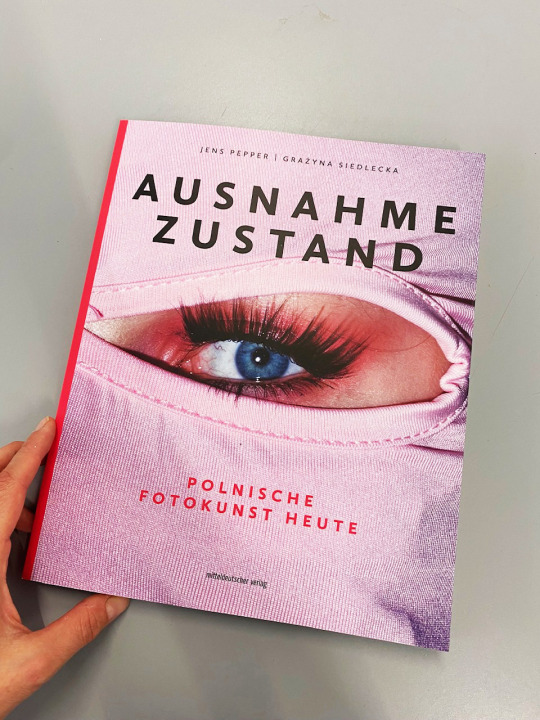
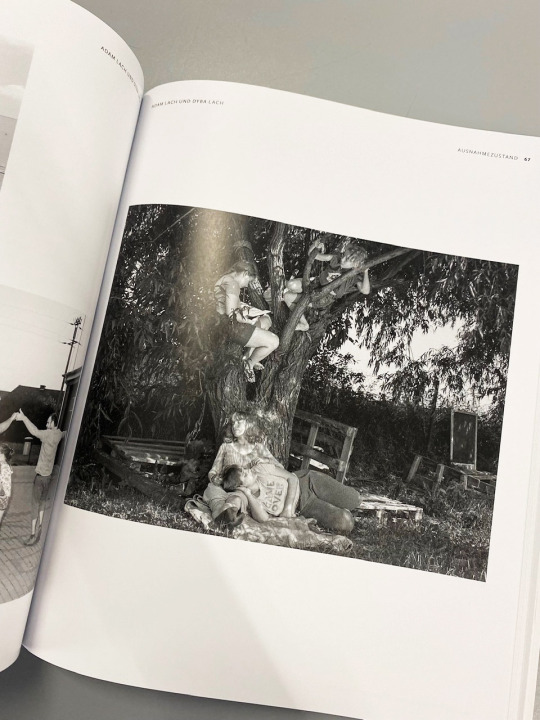
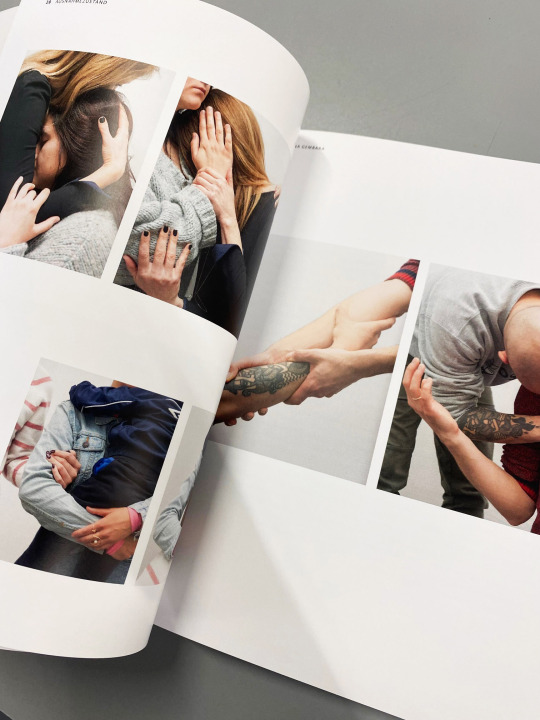
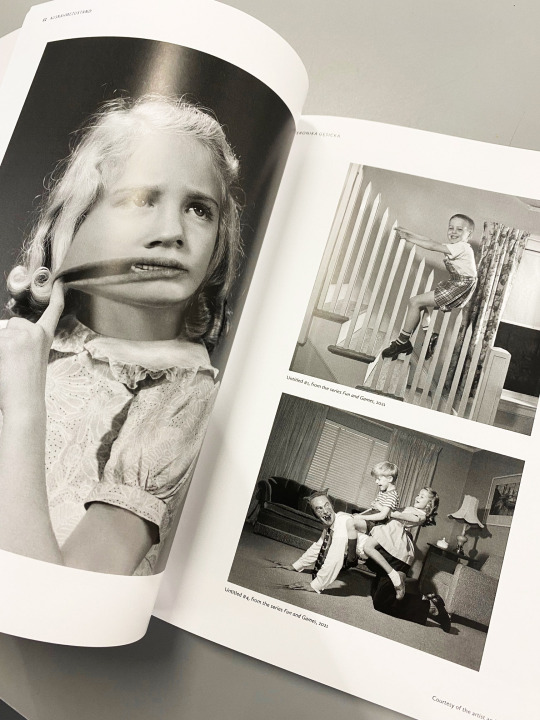
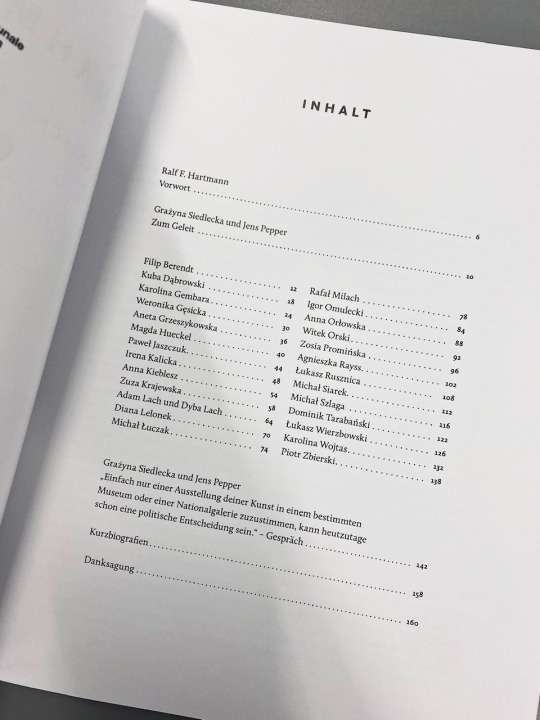
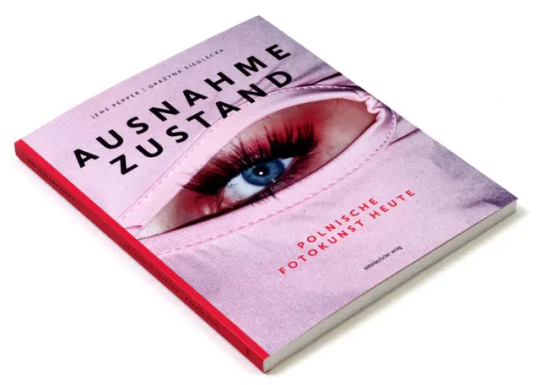
Jens Pepper & Grażyna Siedlecka - Ausnahmezustand catalogue Mitteldeutscher Verlag 2022
German, English & Polish language
Photography from Poland is generally not very well known in Germany, although one of the most exciting photo scenes in Europe has developed in the country. The book accompanying the exhibition of Polish photographic art at Berlin's ZAK – Center for Contemporary Art in the Zitadelle Spandau aims to close this gap in knowledge and shows works by young and middle-aged artists. In addition to many forms of aesthetically and formally fresh documentary photography, the spectrum of what is shown ranges from portrait and self-portrait photography to still life and landscape photography to free artistic approaches in abstraction. On the basis of extensive research and in-depth knowledge, the curators have selected positions that allow a look at all aspects of contemporary life in Poland, while also not ignoring the downsides.
With works by Filip Berendt, Kuba Dąbrowski, Karolina Gembara, Weronika Gęsicka, Aneta Grzeszykowska, Magda Hueckel, Pawel Jaszczuk, Irena Kalicka, Anna Kieblesz, Zuza Krajewska, Adam Lach & Dyba Lach, Diana Lelonek, Michał Łuczak, Rafał Milach, Igor Omulecki, Anna Orłowska, Witek Orski, Zosia Promińska, Agnieszka Rayss, Łukasz Rusznica, Michał Siarek, Michał Szlaga, Dominik Tarabanski, Łukasz Wierzbowski, Karolina Wojtas, Piotr Zbierski
ISBN-13: 9783963117336
Soft cover, 160 pages, format 224×271×17 mm
#ausnahmezustand#catalogue#jens pepper#grazyna siedlecka#publikacation#book#books#filip berendt#kuba dabrowski#karolina gembara#weronika gesicka#aneta grzeszykowska#magda hueckel#pawel jaszczuk#irena kalicka#anna kieblesz#zuza krajewska#adam lach#dyba lach#diana lelonek#michal luczak#rafal milach#igor omulecki#anna orlowska#witek orski#zosia prominska#agnieszka rayss#luaksz rusznica#michal siarek#michal szlaga
3 notes
·
View notes
Photo

Rafal Milach (PL, 1978)
_
Photo from the 4th day of protests against the abortion ban, Warsaw, Poland, October 2020. “STRIKE” photobook is a visual record of these protests.
Rafał Milach is a visual artist, activist, photographer, and educator. His work focuses on the tension between society and power structures. Author of protest books and critical publications on state control.
https://www.magnumphotos.com/shop/collections/square-prints-04-23/magnum-square-print-vital-signs-rafal-milach/
http://rafalmilach.com/
http://rafalmilach.com/works/books/strike-b.html
13 notes
·
View notes
Text
Rafał Milach: "Es ist sehr schwierig, europäische Maßstäbe an Polen anzulegen"
Der Fotografiekünstler Rafał Milach dokumentiert mit seiner Kamera die spezifische linke Protestkultur in Polen. Hier spricht er über die bevorstehende Wahl. …. mehr lesen: Die Zeit (Quelle)
View On WordPress
0 notes
Text
0 notes
Text
photography round 1 poll 10


tap to view full images
Untitled from the Milk Bars series by Nicolas Grospierre, early 2000s:
[no propaganda has been submitted]
[what are milk bars?]
more photos in the series
Untitled from the Ba Lan series by Rafał Milach, between 2005-2008:
submitted description: Vetnamese women are eating hot soup at a restaurant, you can see fragments of vietnamese writing on the window
propaganda: This too is Poland (also i'm getting hungry just looking at this pic)
more photos in the series + a description of the project (in polish)
51 notes
·
View notes
Photo

Protests Against Abortion Ban, Warsaw, Poland
The Archive of Public Protests exhibition collates images of social activism, warning against growing populism and discrimination in the broadest sense of the term: xenophobia, homophobia, misogyny and the climate crisis. In creating the archive, its creators wish to prolong the lives of their images, which are linked to specific events and whose existence usually ends with their publication in the press. It brings together photographs in a single, easily accessible collection available to researchers, artists and activists. Photography by Rafał Milach
0 notes
Photo

Rafał Milach
19 notes
·
View notes
Photo

Vasya: Nowadays it’s different from in the Soyuz. I remember how my aunt, who worked at the Soviet Ministry of Culture, used to organize balls in Sverdlovsk. A neckline lower than the seventh vertebra was regarded as pornography, but now even if you ran about the stage with your tits bare, no one would say a word. These days people feel freer. The difference is that once upon a time people knew what they had to say, but they couldn’t say it. Now you can say anything, but no one knows what to say.
by Rafał Milach.
32 notes
·
View notes
Text

A monitor screen showing a recording of Alexey Navalny at the TV studio at the Navalny office headquarters in Vilnius, Lithuania, on Jan. 12.
0 notes
